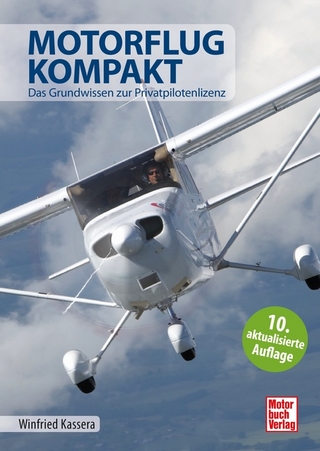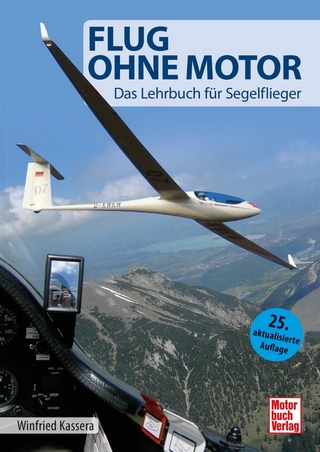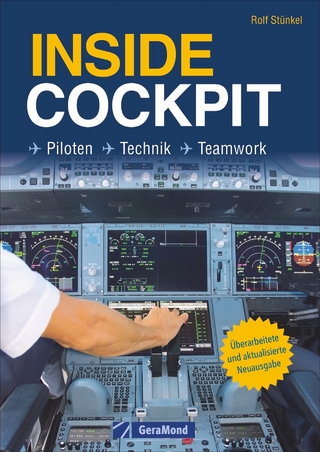
Aviation Resource Management
Routledge (Verlag)
978-1-138-74318-2 (ISBN)
- Titel z.Zt. nicht lieferbar
- Versandkostenfrei innerhalb Deutschlands
- Auch auf Rechnung
- Verfügbarkeit in der Filiale vor Ort prüfen
- Artikel merken
Brent. J Hayward, Andrew R Lowe
1: Aviation Safety; 1: Proactive safety culture: Do we need human factors?; 2: Organisational learning in the aviation business; 3: Safety culture and human error in the aviation industry: In search of perfection; 4: A multi-layer model for incident reporting and analysis systems; 5: An organisational approach to human factors; 6: Reducing accidents among general aviation pilots through a national aviation safety program; 7: Human factors and systems safety training into the new millennium: Co-operation or confrontation?; 8: Luck: The final frontier in safety?; 9: A study of the safety of flight in degraded visual conditions; 10: Safety management in an integrated flying school; 2: Crew Resource Management; 11: Safety and error management: The role of crew resource management; 12: Western expatriates in an eastern organisation: A Malaysia Airlines experience; 13: The trouble with culture; 14: Creating and implementing a human factors safety culture in Central America; 15: The road to company CRM at Ansett Australia; 16: Human factors assessment: Pedantic semantics or the write stuff?; 17: Traditional flight crew and CRM training: Is it really safe?; 18: “Captain, what the…?”; 19: CRM in general aviation for single-pilot operations; 20: Crew concepts in the air ambulance service of Norway; 21: Enhancing the role of helicopter crewmen during single-pilot EMS operations; 3: The Aircraft Cabin; 22: Safety issues in cockpit/cabin crew communication; 23: Service, teamwork and flight safety; 24: Flight attendants’job performance and job satisfaction: The role of work-family conflict, supervisor support and job involvement; 25: Working conditions of Brazilian flight attendants: A qualitative approach; 4: Cockpit Automation; 26: Human factors in advanced technology aircraft; 27: Differences training for the glass cockpit: A comparison of pilot attitudes to two approaches; 28: Lessons from new technology; 29: Technology for instruction and learning: Support versus solution?; 30: Heads down for a ‘heads-up’: Cockpit procedures for automated flight; 31: The hidden losses in cockpit automation; 5: Safety Investigation; 32: From Dry den to Winnipeg – and all points beyond; 33: Strategic accident prevention with applied human factors theories; 34: Theoretical taxonomies of cognitive human failure: A comparison between fixed, rotary-wing, and glider aircraft; 35: Pilot error: Cognitive failure analysis; 6: Fatigue and Stress; 36: Fatigue management in aviation: Similarities between the effects of fatigue and alcohol on performance impairment; 37: Fatigue in the air activity The pilot’s perception; 38: Devising a model for effective stress management in a leading South African airline company; 39: The physiological factor; 7: Developmental Workshop Reports; 40: Applied human factors training workshop report; 41: Aviation safety investigation workshop report; 42: Cabin safety workshop report
| Erscheinungsdatum | 24.03.2022 |
|---|---|
| Reihe/Serie | Routledge Revivals |
| Verlagsort | London |
| Sprache | englisch |
| Maße | 152 x 234 mm |
| Gewicht | 970 g |
| Themenwelt | Natur / Technik ► Fahrzeuge / Flugzeuge / Schiffe ► Luftfahrt / Raumfahrt |
| Sozialwissenschaften ► Soziologie | |
| Technik ► Fahrzeugbau / Schiffbau | |
| Technik ► Luft- / Raumfahrttechnik | |
| ISBN-10 | 1-138-74318-6 / 1138743186 |
| ISBN-13 | 978-1-138-74318-2 / 9781138743182 |
| Zustand | Neuware |
| Haben Sie eine Frage zum Produkt? |
aus dem Bereich


